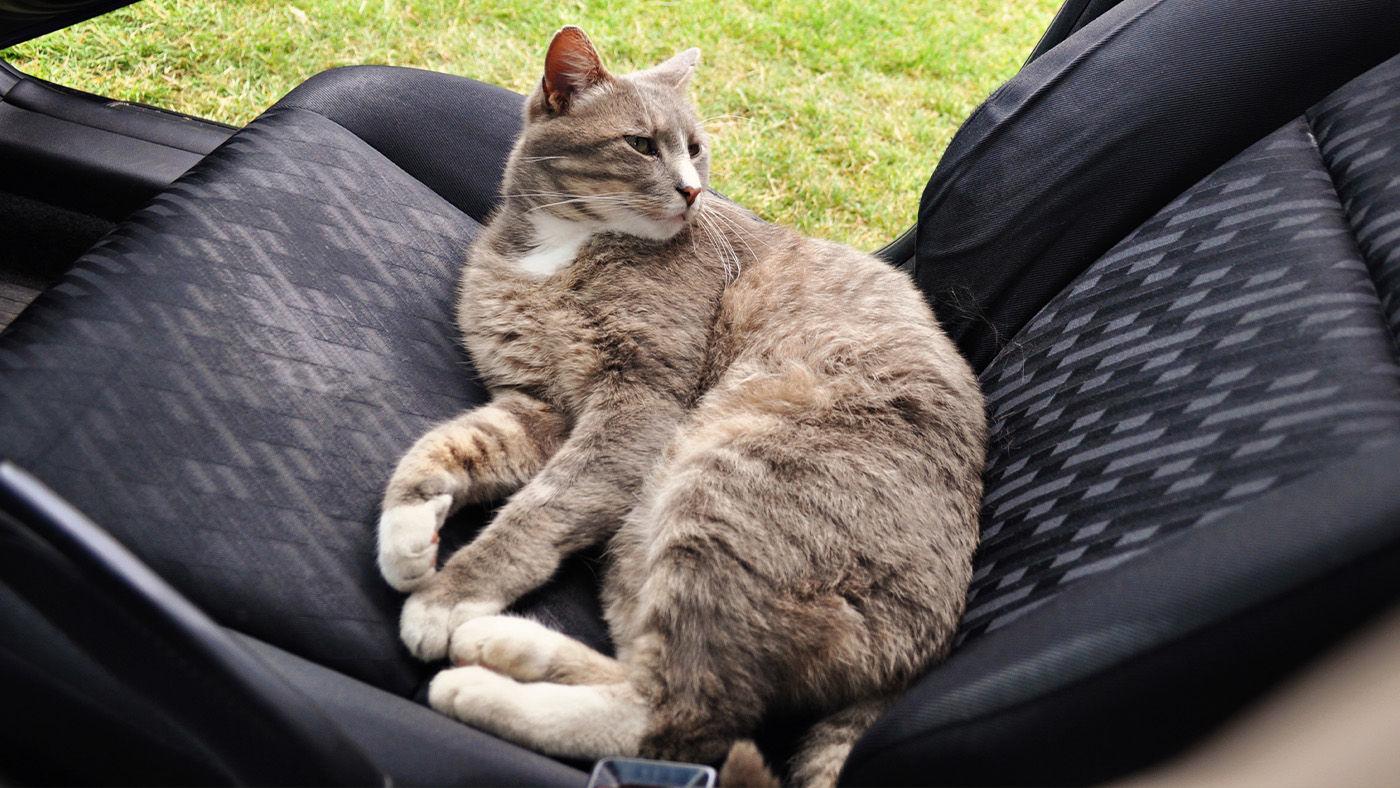32 tips for taking care of rabbits
Keen to delve into some tips for taking care of rabbits? Lettuce hop to it!
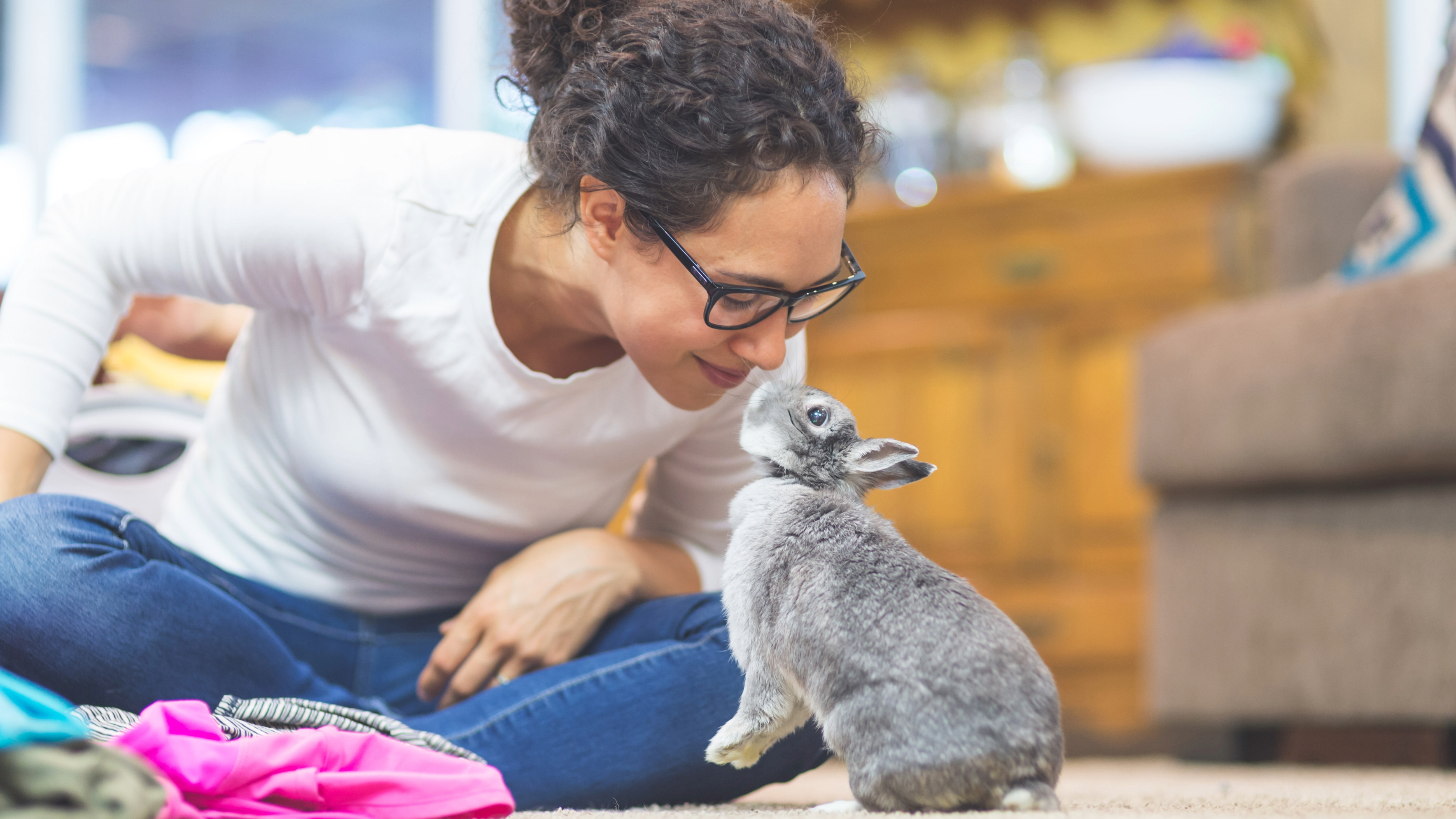
Looking for tips for taking care of rabbits? We’ve got you covered! Whether you’ve just welcomed a new floppy-eared friend into your family or you’re considering adopting, you’ll find a wealth of information below to help you look after your new pet or inform your decision on whether a bunny is the right buddy for you.
It can be easy to think that all a bunny needs is one of the best indoor rabbit hutches, some hay and pellets, and a few toys, but rabbits aren’t the low-maintenance pets we might believe they are. In reality, they need a lot of love and care in order to thrive, so it’s important to be well-prepared and know what you’re getting into.
However, if you have the time and energy to devote to them, these super social little creatures can make wonderful companions. Ready to find out more? Well, keep calm and carrot on reading as we reveal our top tips for taking care of rabbits…
32 tips for taking care of rabbits
1. Housing
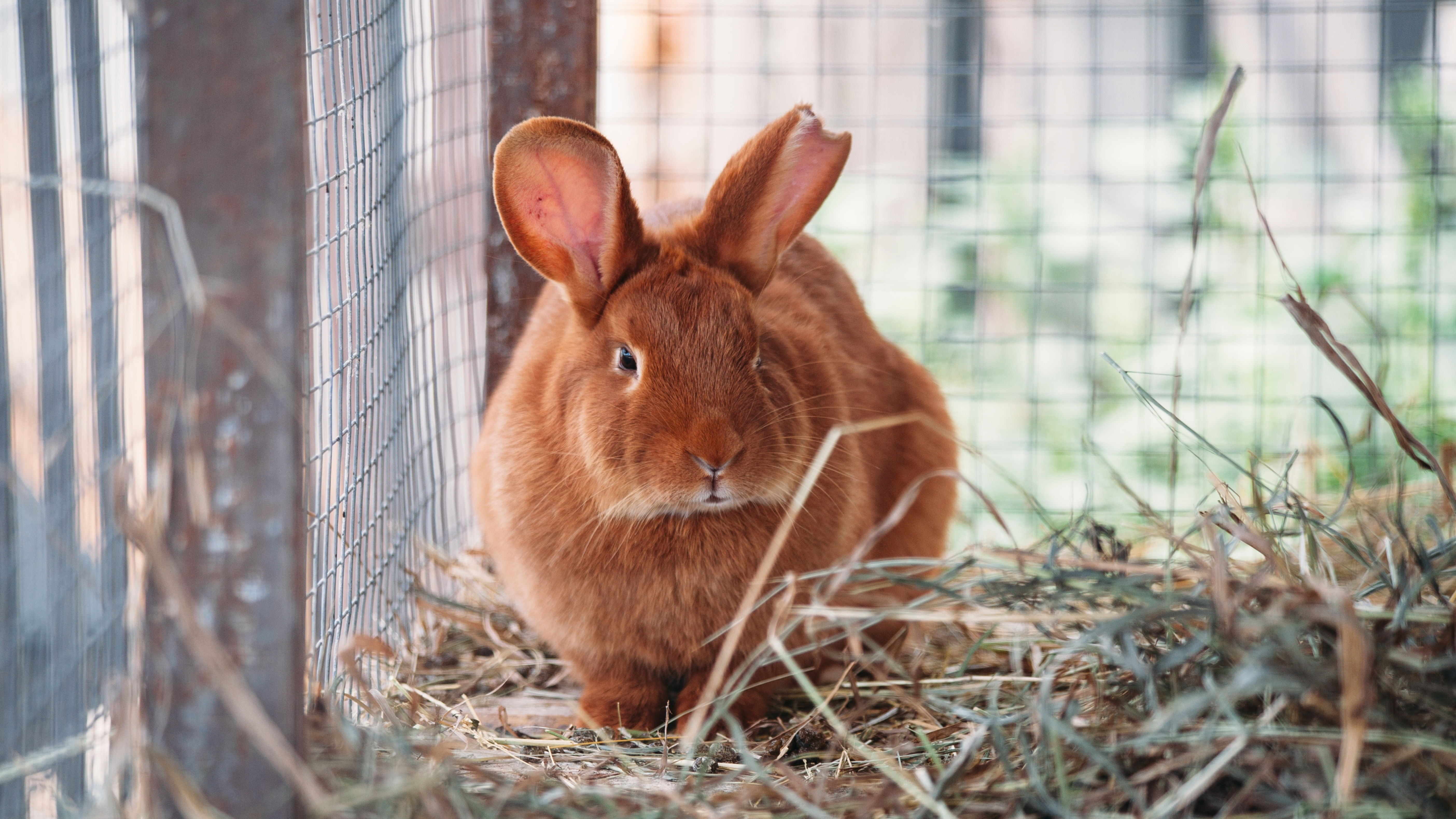
Housing rabbits is a little bit more complicated than you might think. Firstly, you need to decide if you want them to live inside or outside as that will largely determine how much space you have to work with. However, regardless of whether your bunny is going to be an indoor or outdoor dwelling pet, you need to make sure you provide them with plenty of space. Any living area should be at least 3m x 2m x 1m high and their sleeping quarters (for example, a hutch) should be a minimum of 1.8m x 0.6m x 0.6m high.
2. Bedding

When it comes to the best bedding for rabbits, things like hay, straw, aspen shavings, paper, and blankets are all great choices. All rabbits need bedding (yes, including those that live indoors) as this helps them to feel cozy and secure. Plus, for rabbits that live outdoors, bedding also helps to provide an extra layer of warmth and insulation, which is important in the colder months.
3. Food

Believe it or not, rabbits don’t actually need to eat lots of pellets. While these can make up a part of their diet, the best food for rabbits should consist mainly of grass and hay, and the odd treat here and there in the form of bits of carrot and certain fruits.
4. Water

When it comes to the question of what do rabbits need in their cage, water is one of the most important. Your bunny needs 24/7 access to clean and fresh water to ensure they stay hydrated. How much should they drink? Most vets agree that a rabbit should be consuming around 50 to 150ml of water per kg of bodyweight.
PetsRadar Newsletter
Get the best advice, tips and top tech for your beloved Pets
5. Toys
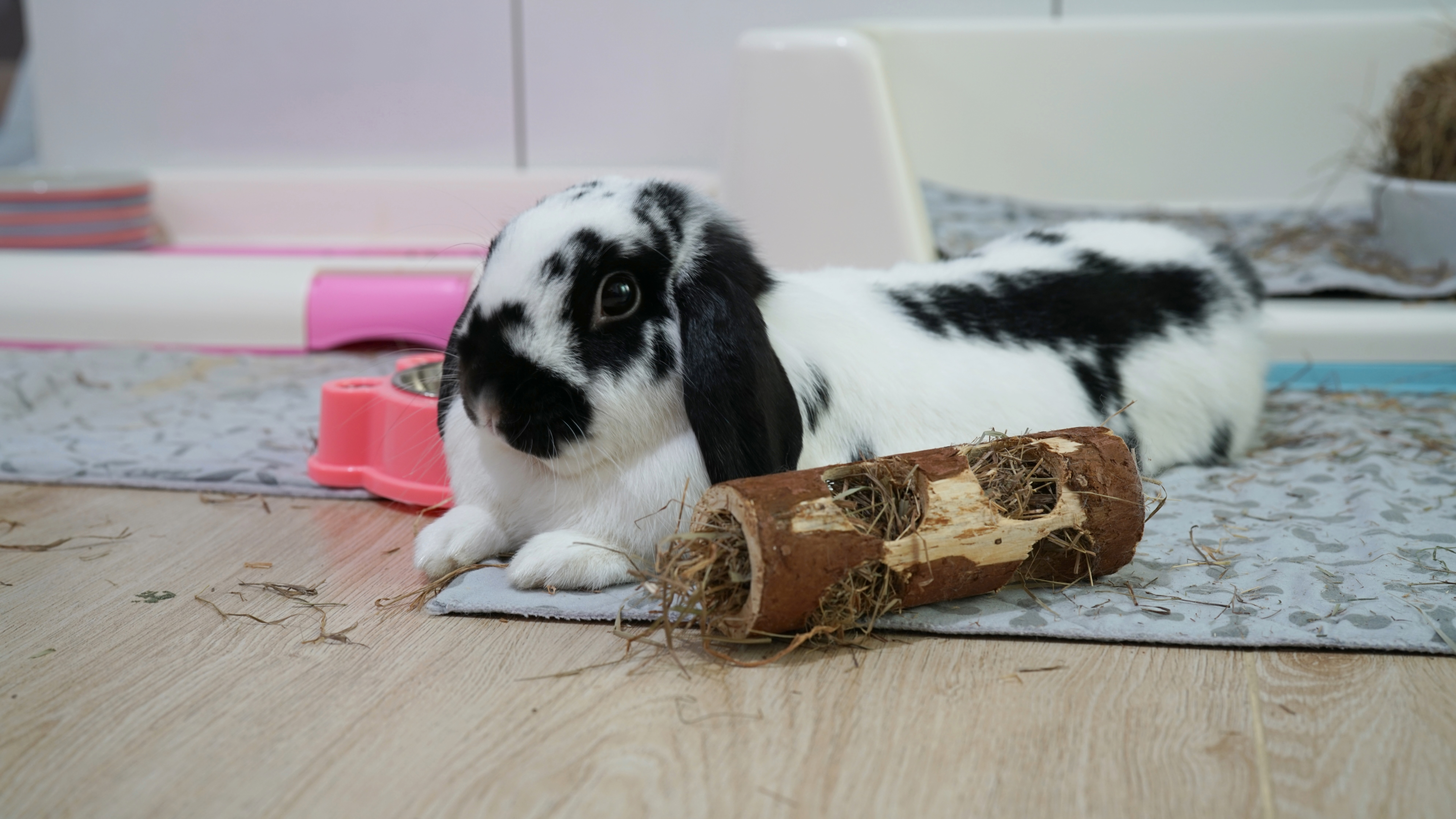
Most of us know that toys are important for dogs and cats, but it turns out they’re equally vital for our floppy-eared friends. The best rabbit toys would encourage your bunny to engage in all the natural behaviors they’d engage in if they were in the wild, such as digging, jumping and chewing. We recommend providing them with a variety of items, including tunnels, mirrors, cardboard, and balls as well as chew toys and foraging toys.
6. Litter tray
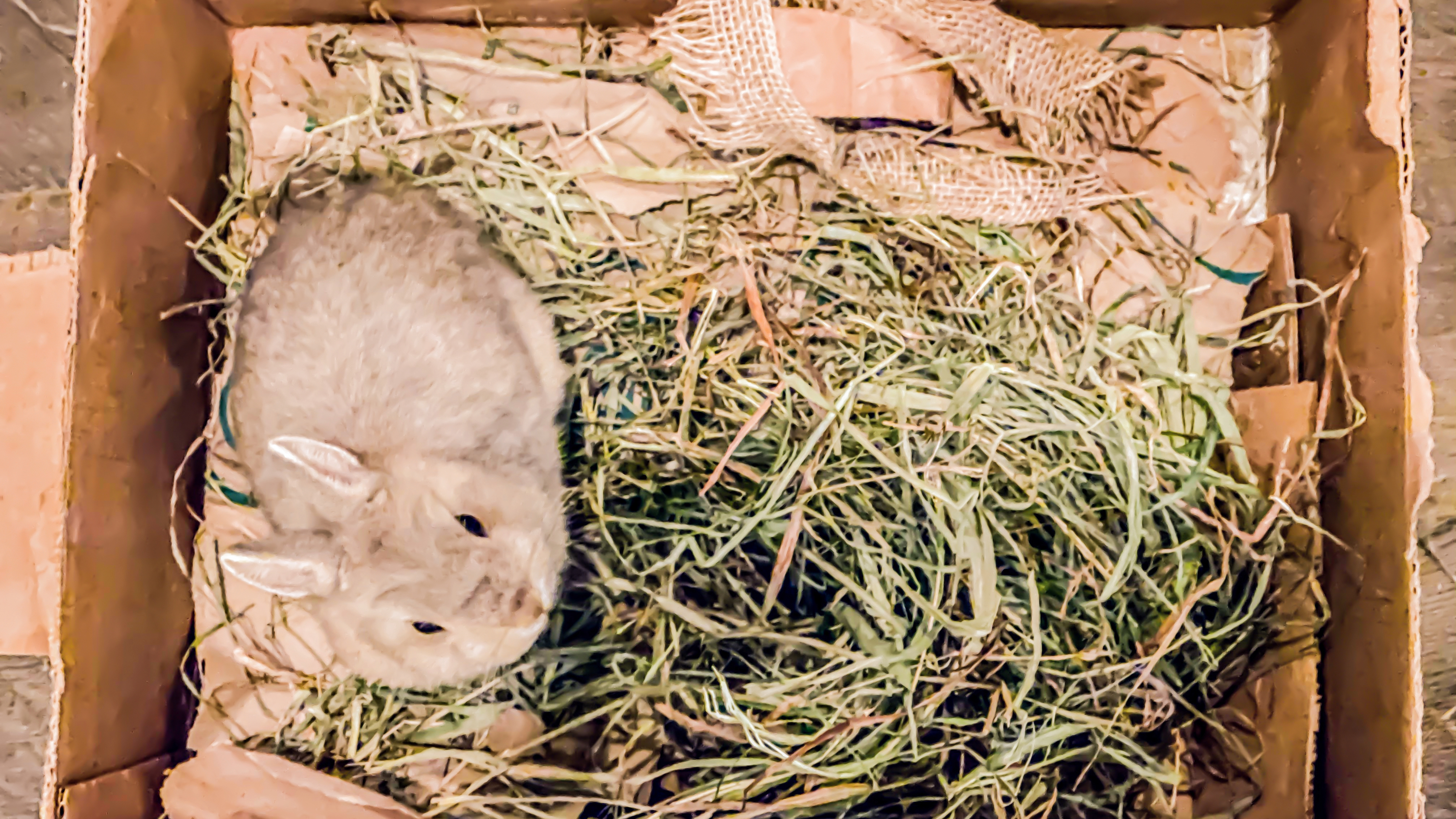
Learning how to litter train a rabbit is actually easier than you might think and aside from investing a small amount of time and patience, all you need is one of the best rabbit litter boxes and the best litter for rabbits and the rest will hopefully be smooth sailing. When it comes to choosing a litter tray, look for one that your rabbit can comfortably sit in at one end with enough space at the other end for aspen shavings or recycled paper.
7. Exercise run

The best rabbit runs are an ideal way to give your bunny some extra space to move around in. While a hutch gives your rabbit a place to sleep, a run gives them an additional area in which to play and exercise. If you have an indoor rabbit and you have outdoor space, consider setting the run-up in your yard so that your bunny can explore and nibble on fresh grass. Don’t worry if you can only have it indoors though, what’s most important is not where the run is but that your rabbit gets the physical exercise they need to stay healthy.
8. Tunnels
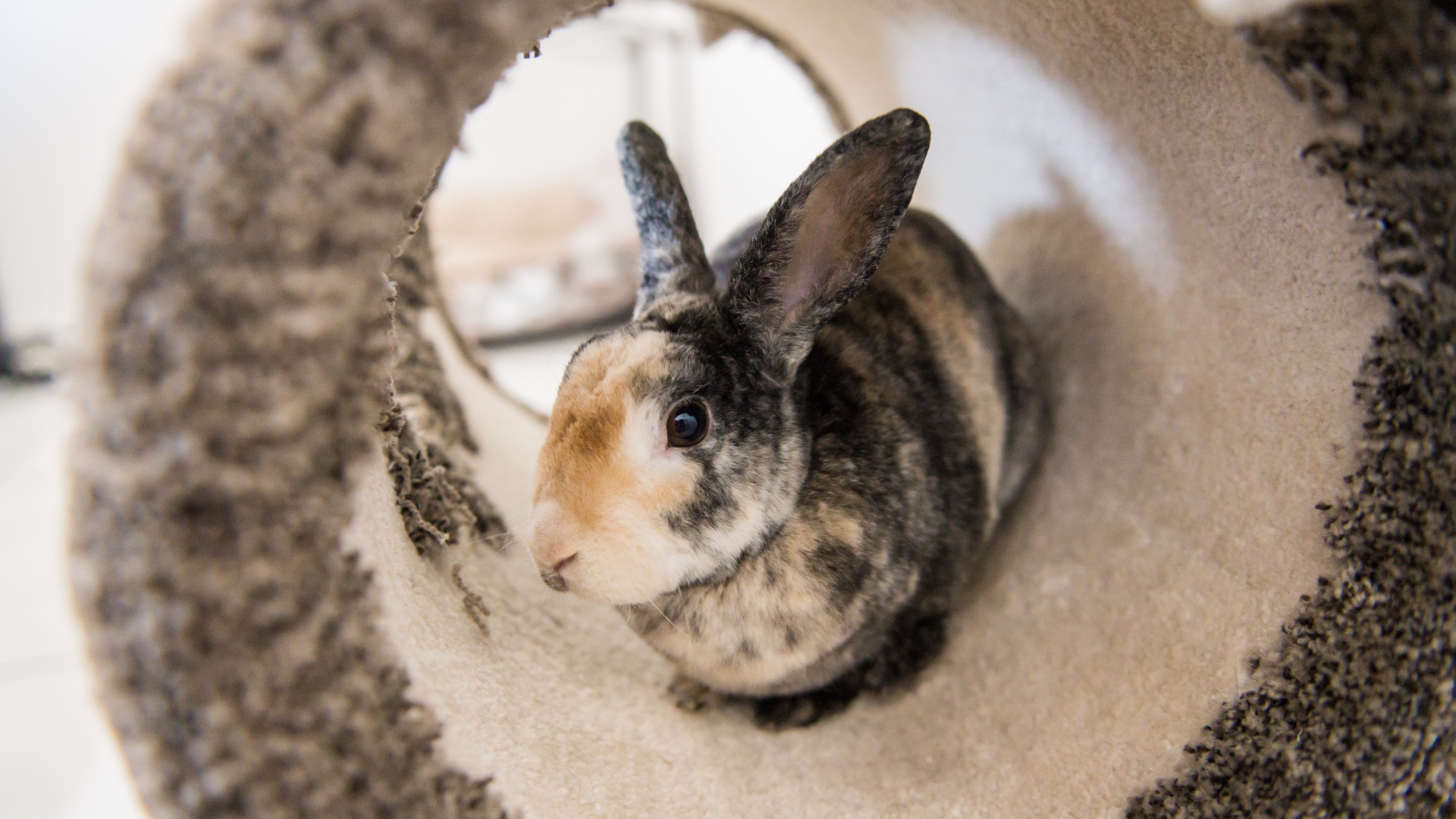
Who knew tunnels could be so fun? Well, apparently, rabbits! Our floppy-eared friends are tunneling creatures by nature. In the wild, they dig to establish extensive warrens for themselves and their families. Buying a tunnel for them helps to recreate the feeling of safety and security these warrens offer and allows them to tap into their natural tunneling instinct.
9. Frequent brushing
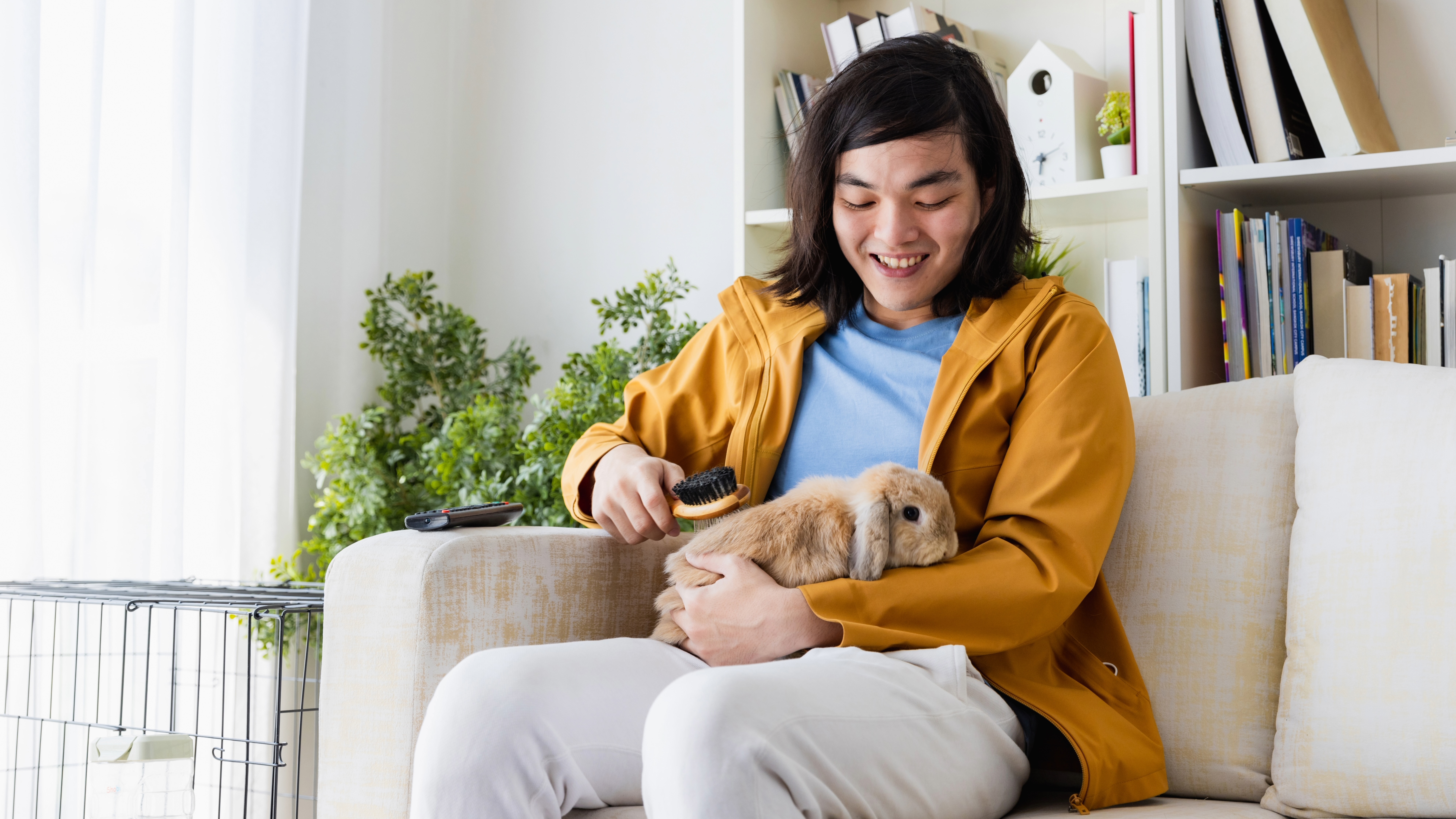
If you want to keep your bunny’s coat tangle and mat-free, investing in one of the best rabbit brushes is a must. Rabbits shed constantly and they’re prone to developing intestinal blockages if they ingest too much fur while they’re grooming themselves or their companion, which is why it’s recommended you give them a good brush at least once a week.
10. Places to dig

Rabbits love to dig, so ensuring you provide them with an opportunity to engage in this natural behavior is vital for their mental health and well-being. If your rabbit lives outside without any wires under foot then you can create an area where there’s some crumbly soil. However, if they’re an indoor-dwelling rabbit, you can still provide them with a special place to dig by creating a digging box. A high-sided litter tray filled with sand or hay is perfect for this.
11. Regular nail trims

Wondering how to cut rabbit nails? If you’re anything like us the very thought probably fills you with nerves, but it’s easier than you might think — not to mention really important for their physical health. Rabbits' nails are constantly growing and while they may wear down naturally if they live outside and their nails are worn down by scratching and digging, most rabbits will need their nails trimmed every one to two months.
12. Things to chew on
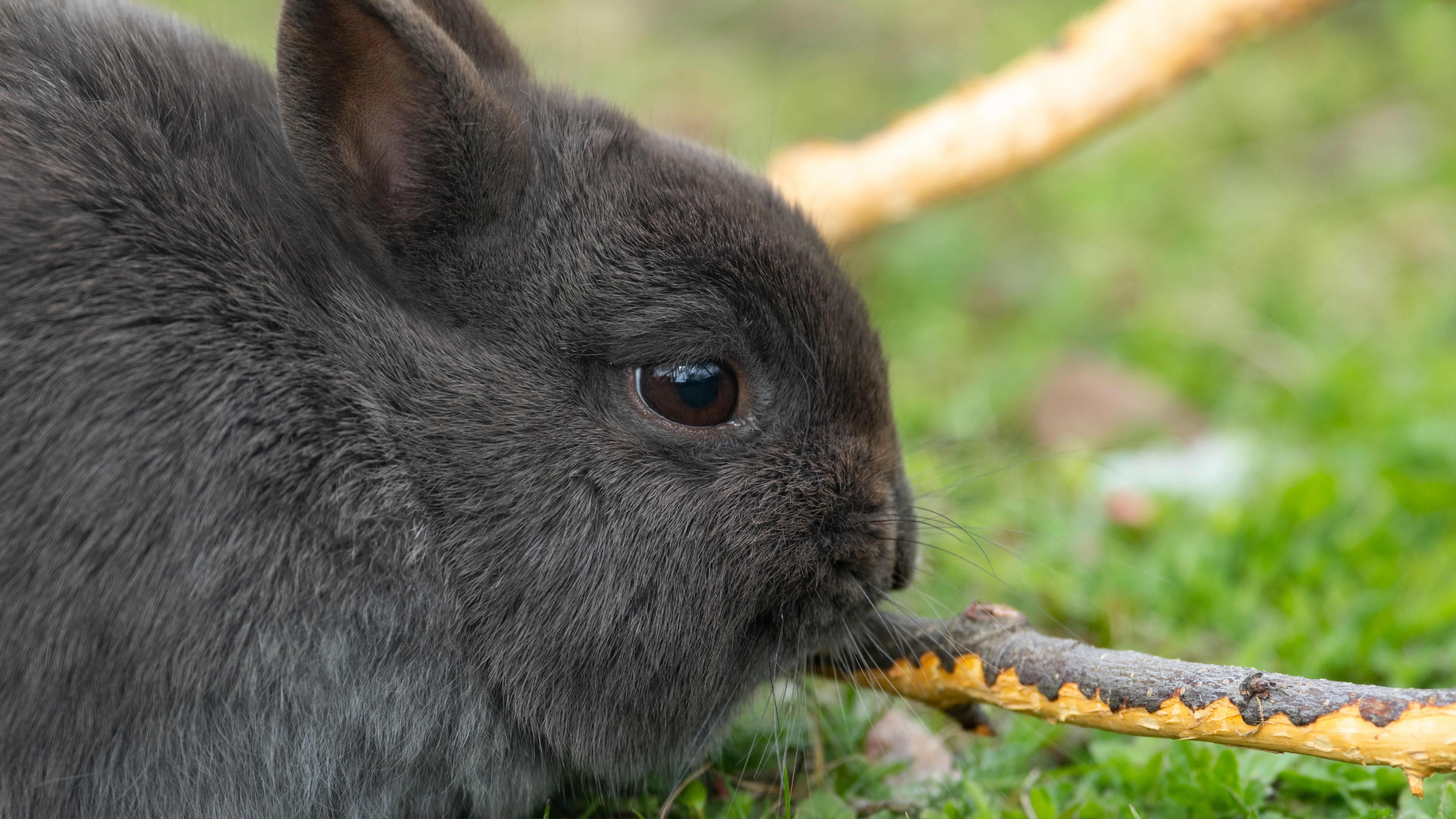
Rabbits’ teeth grow continuously throughout their lives, so daily chewing is vital to help stop their teeth from overgrowing. Not only that, but they have an innate need to chew and this activity is something they really enjoy, which is why providing them with safe options that they can sink their teeth into is so important. When looking for chew toys, choose options made from hardwood, paper, and cardboard as these are all safe for them to chew on and won’t do them any harm if ingested in small amounts.
13. Keep them in pairs

Can rabbits live alone? Yes, but it’s not ideal. Rabbits are social animals who live in communities in the wild and bonded bunnies will groom each other, sleep together, and play together. These things are all super important for their mental health and wellbeing and without a fellow floppy-eared friend, they can suffer from depression and anxiety. However, when pairing rabbits, most vets recommend a neutered male and a neutered female to be the best pairing, although two males or two females from the same litter may work as long as you get them neutered quickly to avoid fighting.
14. Handle them gently
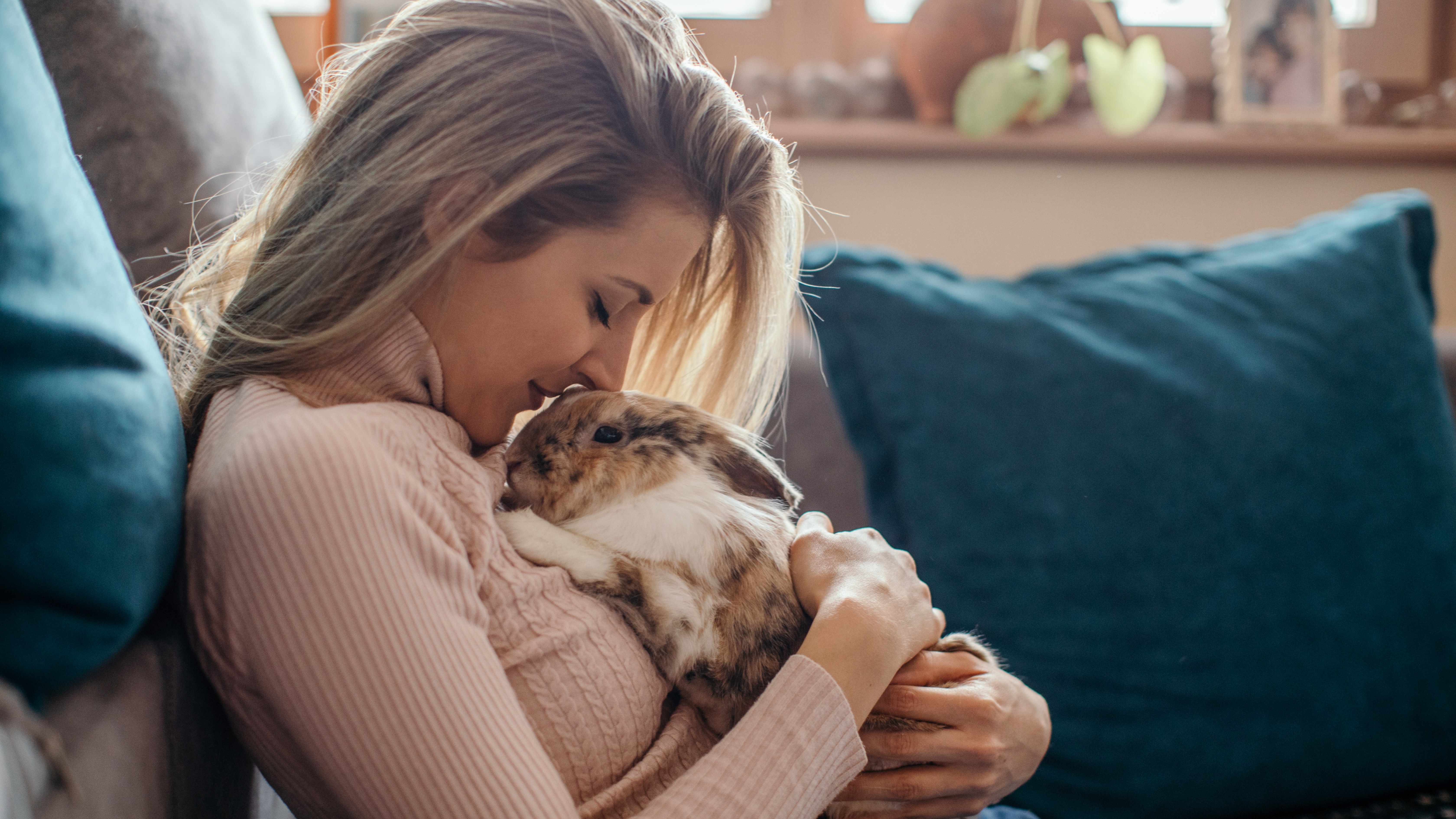
When it comes to our top tips for rabbit care, handling them gently is one you’ll want to be aware of. Rabbits have very fragile spines and these can be damaged if they feel insecure or unsafe and struggle when you hold them. Rabbits should never be picked up by their ears or the scruff of their neck and they should never be placed onto their back. Instead, place one hand under your rabbit’s chest, place your other hand under their hind legs and then lift them and hold them against your body — keep them nice and secure but don’t squeeze them too tightly.
15. Have them neutered

Neutering your pet rabbit is something all vets recommend you do as soon as possible — for male rabbits, this can happen from 10 weeks of age, but for females, this isn’t possible until they reach around five months old. Neutering prevents life-threatening health problems and prevents unwanted pregnancies. Just bear in mind that rabbits can get pregnant from three months of age, so males and females need to be kept separate just before this time until after they’re neutered.
16. Monitor their health
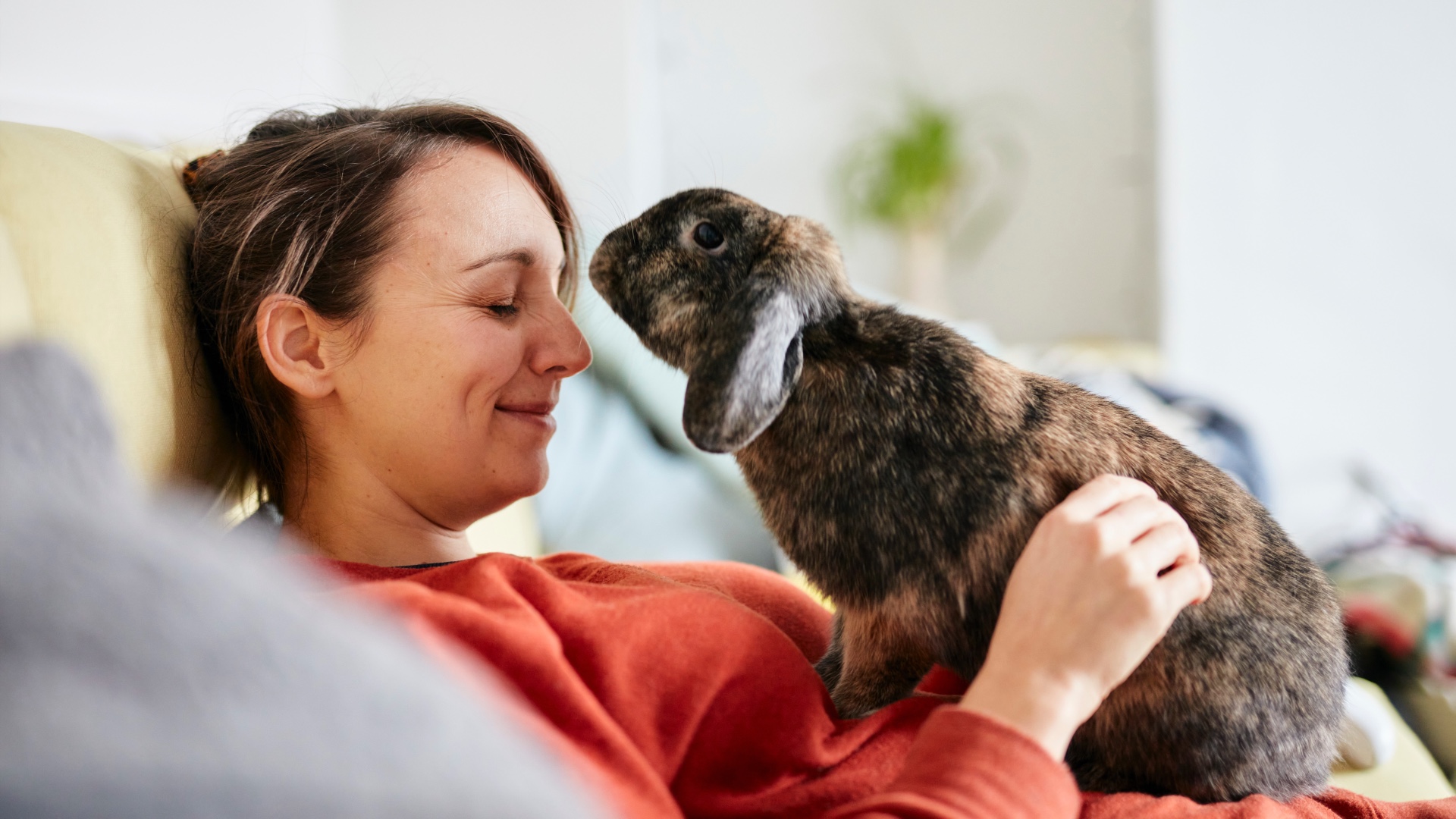
One of the best ways to ensure your rabbit stays happy and healthy is to conduct regular checks. Rabbits are vulnerable to infectious diseases and can also suffer from dental disease and other oral issues related to having continually growing teeth, so giving them a check-up once a day will help you catch any health problems early. As well as inspecting them physically, be on the lookout for any changes in behavior that may indicate illness or pain.
17. Provide them with lots of love and affection

Wondering how to tell if a rabbit is happy? Well, if they’re licking or nudging you, that’s definitely a good sign! Rabbits can be very affectionate pets and most of them enjoy spending time with their human companions. They may not behave in quite the same way dogs or cats do, but don’t let that fool you — rabbits are social creatures and need to interact with their humans in order to stay happy. Many love cuddling and quiet petting is also typically very much appreciated.
18. Bunny-proof your house

If you’re thinking of welcoming a floppy-eared friend into your family or you already have one, learning how to bunny proof a room is essential. Rabbits have a wonderful way of getting into just about everything and they love to chew, so be sure to keep all cables secure and use furniture protectors to keep your couch and chairs free from teeth marks.
19. Give them plenty of fresh greens

Fresh vegetables should make up 10% of your rabbit's diet and leafy greens should make up 75% of this. Be sure to check that the vegetables you want to serve your rabbit are safe, but some good choices include arugula, collard greens, carrot and beet tops, kale, butterhead and cos lettuce, basil, parsley, alfalfa sprouts, and spinach. For the other 25% of your bunny’s daily vegetable intake, consider things like cucumber, broccoli, green beans, pumpkin and carrot.
20. Understand how your rabbit communicates

Understanding what your rabbit’s body language is trying to tell you is a great way to get to know what your bunny is feeling. For example, did you know that a happy rabbit will often do what’s known as a binky where they jump off the ground mid-fun and do a mini twist? Super cute! Happy rabbits will also often do their own little version of the zoomies and tend to be curious, eat well, and groom regularly. In contrast, a worried or stressed bunny may sit in a crouched position with their muscles tense and their ears flattened. Becoming familiar with these signs can give you insight into your rabbit’s health and well-being.
21. Offer lots of enrichment
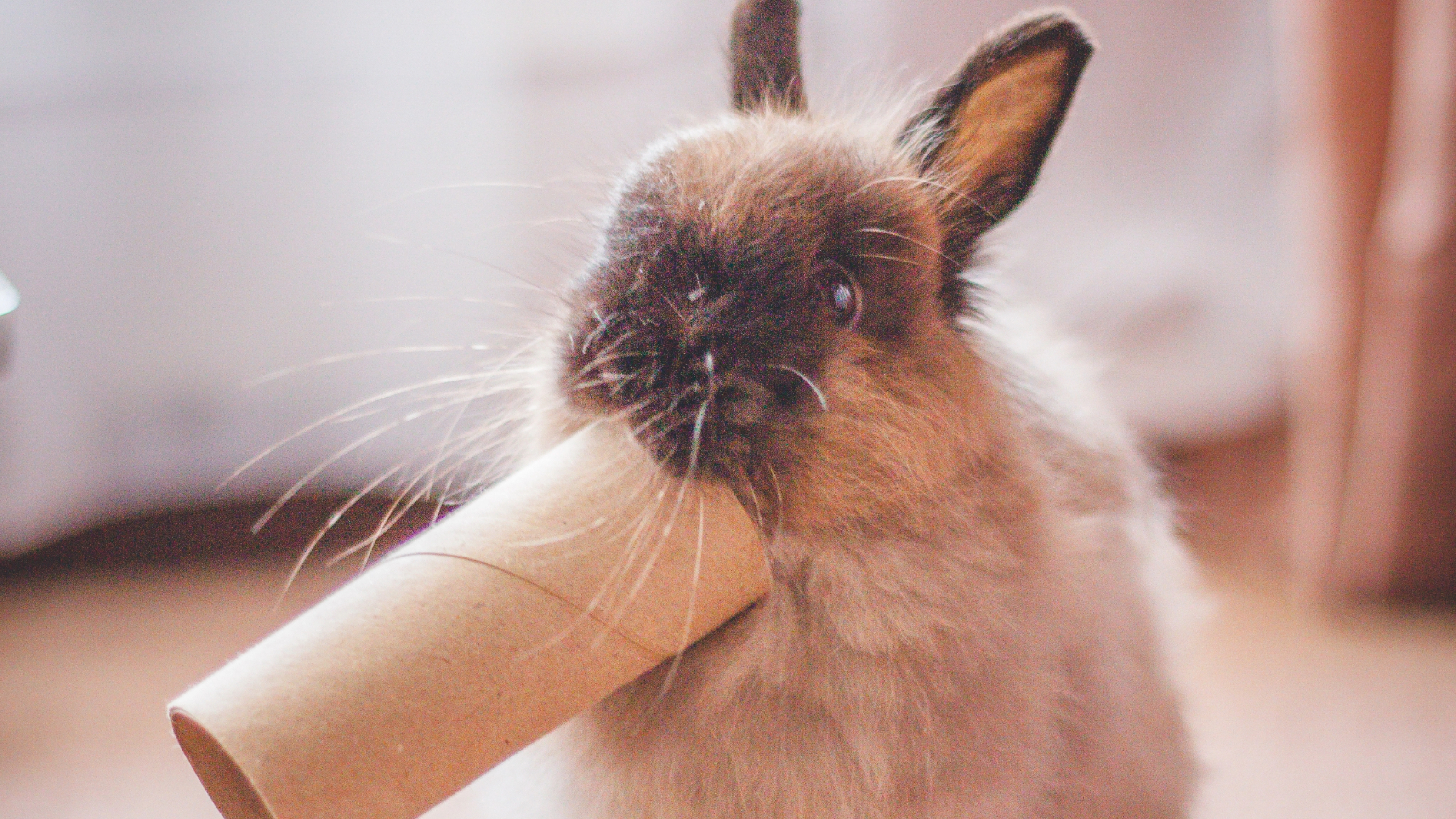
Just like any other animal, rabbits require lots of mental and physical enrichment in order to thrive. Enrichment comes in many different forms, so don’t be afraid to mix it up to offer your bunny lots of variety. This might include putting toys in their hutch or run for them to play with, providing them with physical touch in the form of petting or a cuddle, giving them opportunities to forage and dig, turning their food into a puzzle or game to give their brain a good workout, or grooming them.
22. Make sure their environment is the right temperature
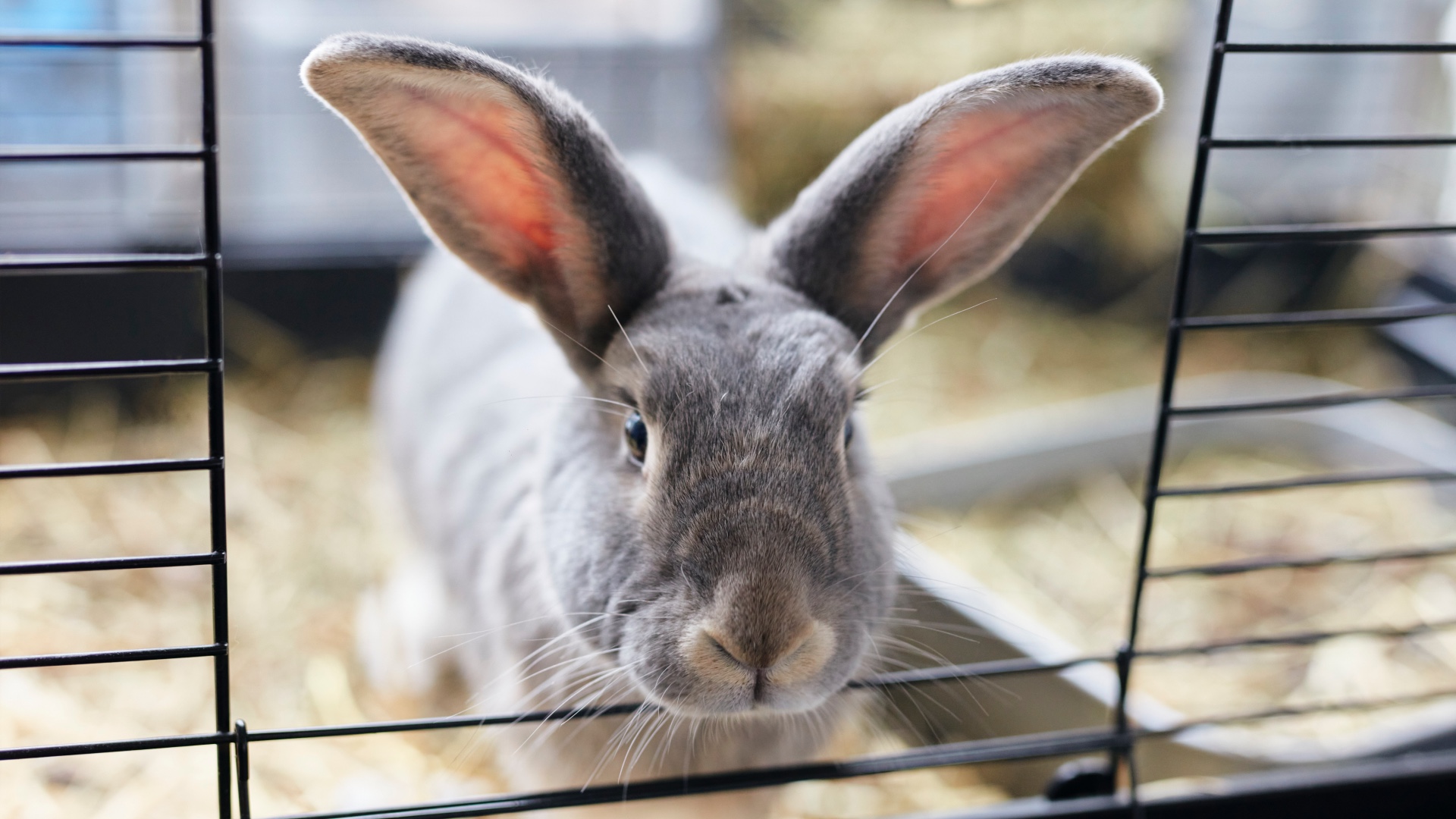
While rabbits are hardy little creatures, they don’t do well with changes in temperature and prefer temperatures of between 60 to 70 degrees Fahrenheit, although they are comfortable in lower temperatures as long as they’re appropriately housed. They don’t, however, do well in the heat and so are not suited to very hot climates and if temperatures reach freezing, outdoor rabbits need to be moved indoors.
23. Spend time with your rabbit each day
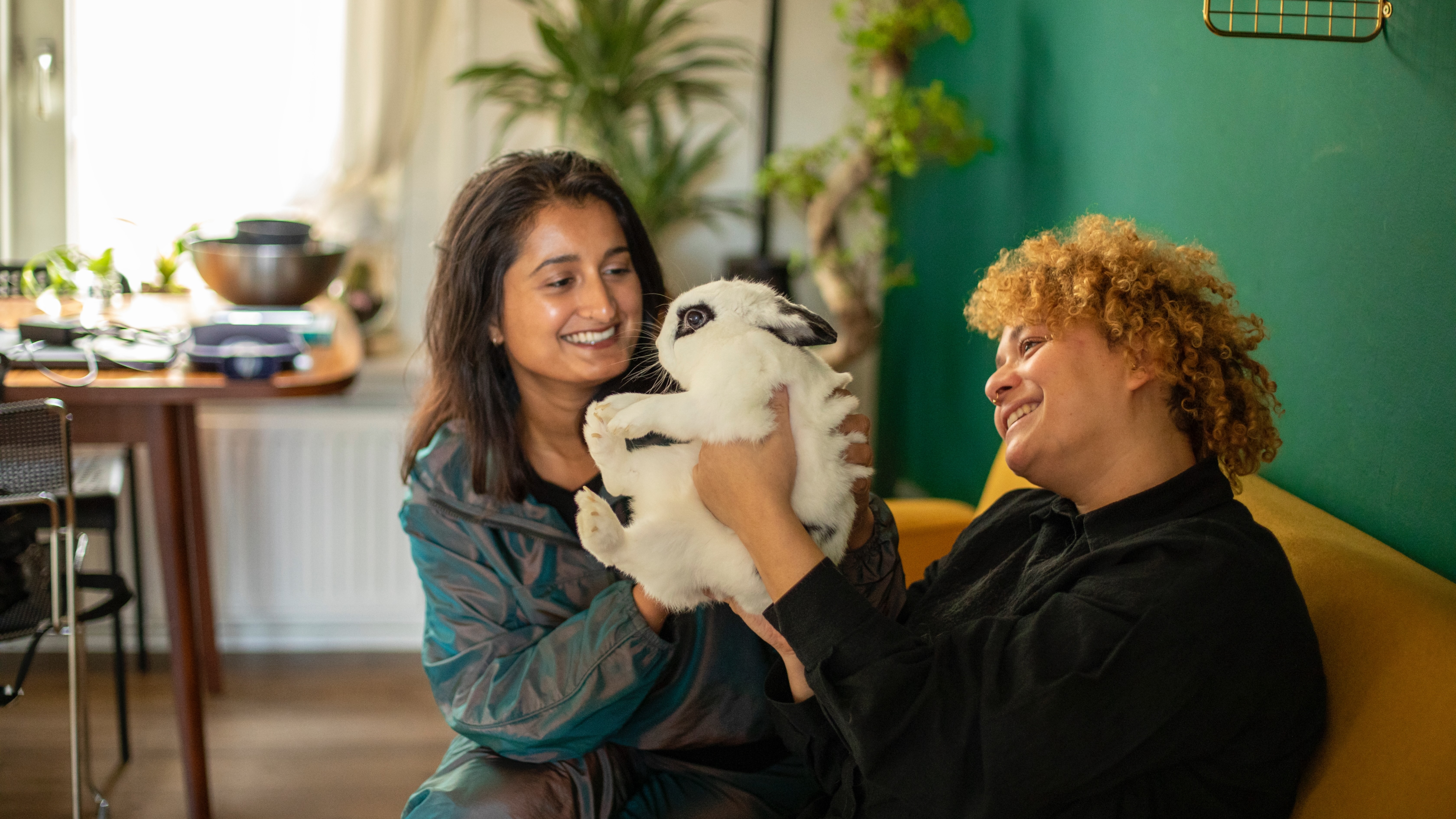
As a minimum, try to spend at least an hour with your rabbit each day and up to five hours if at all possible. This doesn’t mean you have to be actively engaging with them for this whole time, but being in the same room and letting them interact with you when they choose to is vital for their mental health and well-being. Without company, rabbits can become lonely and sink into depression, so spending quality time with them can help prevent this. Alongside playing with them, simple activities like watching TV, working, or reading a book with them next to you all count as time spent with your bunny.
24. Have them vaccinated
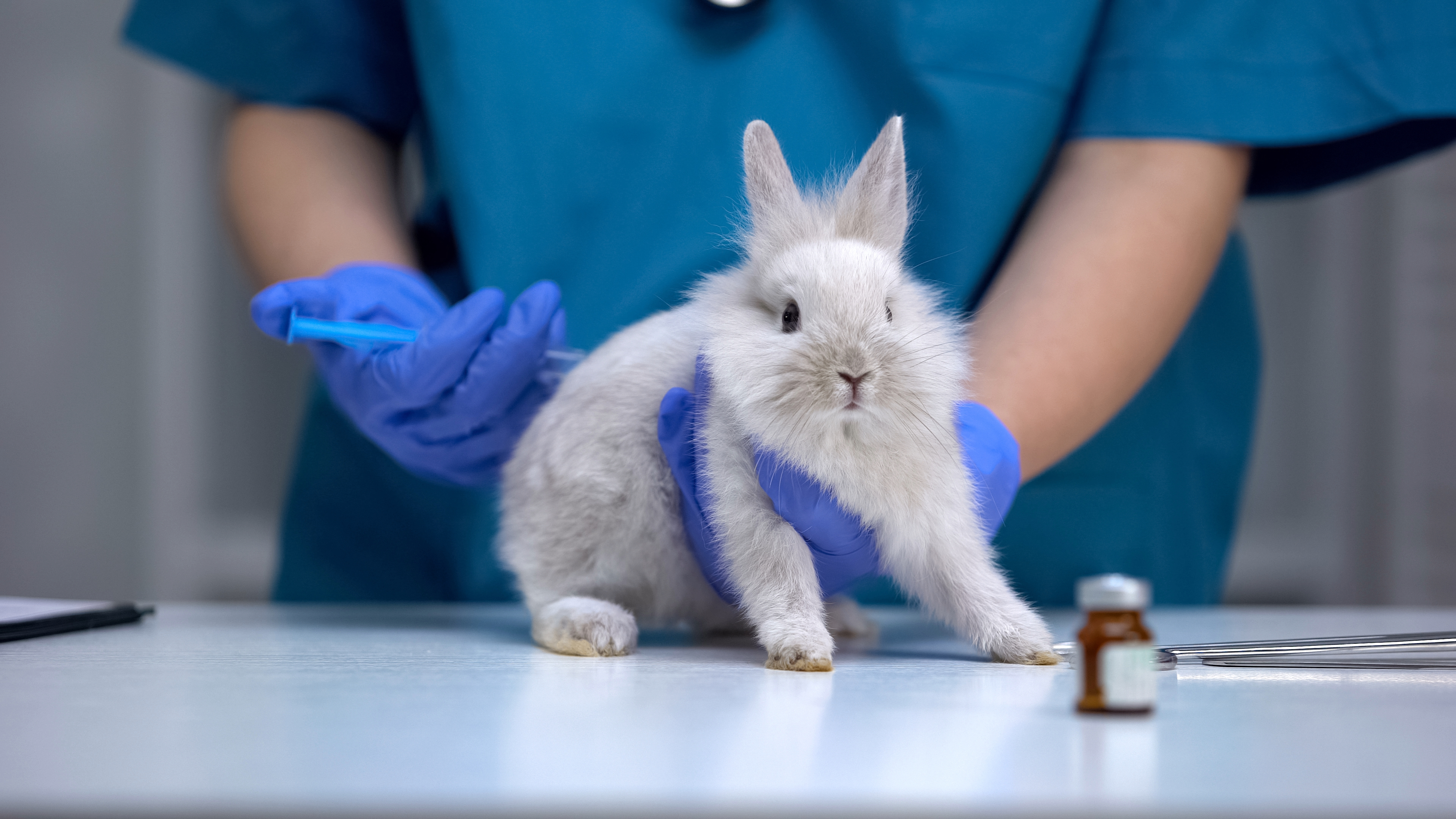
There are lots of facts about rabbits that might surprise you. For example, just like cats and dogs, rabbits need to be vaccinated in order to stay healthy. All rabbits should be vaccinated regularly to protect them against potentially fatal diseases. Initial vaccinations will be given when your rabbit is between five and 10 weeks old, with a booster vaccination being administered on an annual basis.
25. Be aware of breed-specific health issues

There are many breeds of rabbits and some come with more potential health issues than others, so it pays to do your research before adopting one. Flat-faced rabbit breeds, such as the Netherland dwarf, lionhead or mini lop-eared rabbits can develop problems with overgrown or overcrowded teeth as well as eye issues. Rabbits with lop ears are also prone to ear infections and loss of hearing.
26. Regular vet check ups

Just like cats and dogs, rabbits require regular vet checks to catch any health issues before they turn into serious problems. An annual check up is adequate for rabbits that are fit and well, but elderly rabbits or those with a medical condition should be seen once every six months.
27. Keep their stress levels low
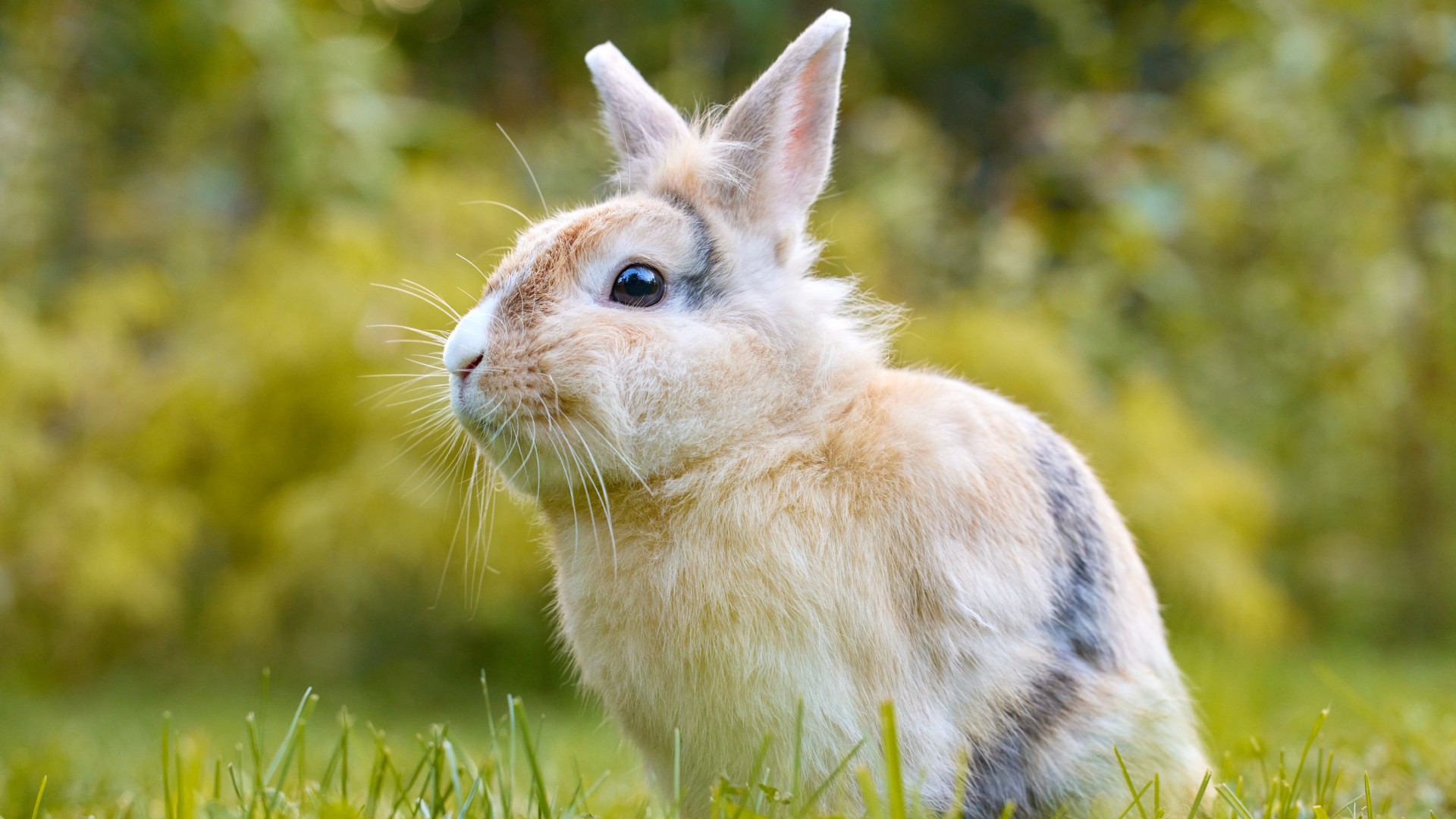
Rabbits like stability, predictability, and routine and need to feel comfortable to carry out all of their natural behaviors. Our floppy-eared friends can quickly become stressed and anxious if they don’t have these things so keeping things consistent and being patient and gentle with them are very important.
28. Teach children how to interact with them

While we often think that a rabbit would make a great pet for a child, this is not always the case. Rabbits are very sensitive creatures and many do not enjoy being picked up. If you have a young child, you’ll want to do your research to make sure that a bunny is the right fit for your family. If you decide that it is, it’s important that children are taught how to interact appropriately with their new friend — including speaking softly around them, handling them gently, and moving slowly when their rabbit is in the room. Child-bunny interactions should also always be supervised.
29. Let them sleep

Most rabbits sleep for around 8.5 hours per day, however, pet rabbits that feel safe, secure, and comfortable will often sleep for up to 12 hours a day. However, unlike us humans, rabbits won’t sleep for one big block of time, instead they’ll take lots of mini naps throughout the day. Some people wonder ‘are rabbits nocturnal?’ but the answer to this is no. Rabbits are neither nocturnal (active at night) nor diurnal (active during the day), instead, they’re classed as crepuscular which means they’re most active at dawn and dusk. Be sure to provide your rabbit with a quiet environment with cozy bedding so that they can get the rest they need when they need it.
30. Take extra care of them during fireworks season

If you have outdoor-dwelling rabbits, it’s worth noting that all the bangs, whizzes and other loud noises that fireworks create can cause them a great deal of anxiety. During times when you know fireworks are likely to occur (like the Fourth of July and New Year’s Eve) move your bunny indoors and provide them with extra bedding that they can burrow into to muffle the noise. You can also cover their hutch over with thick blankets to help keep some of the sound out.
31. Understand that rabbits are a long-term commitment
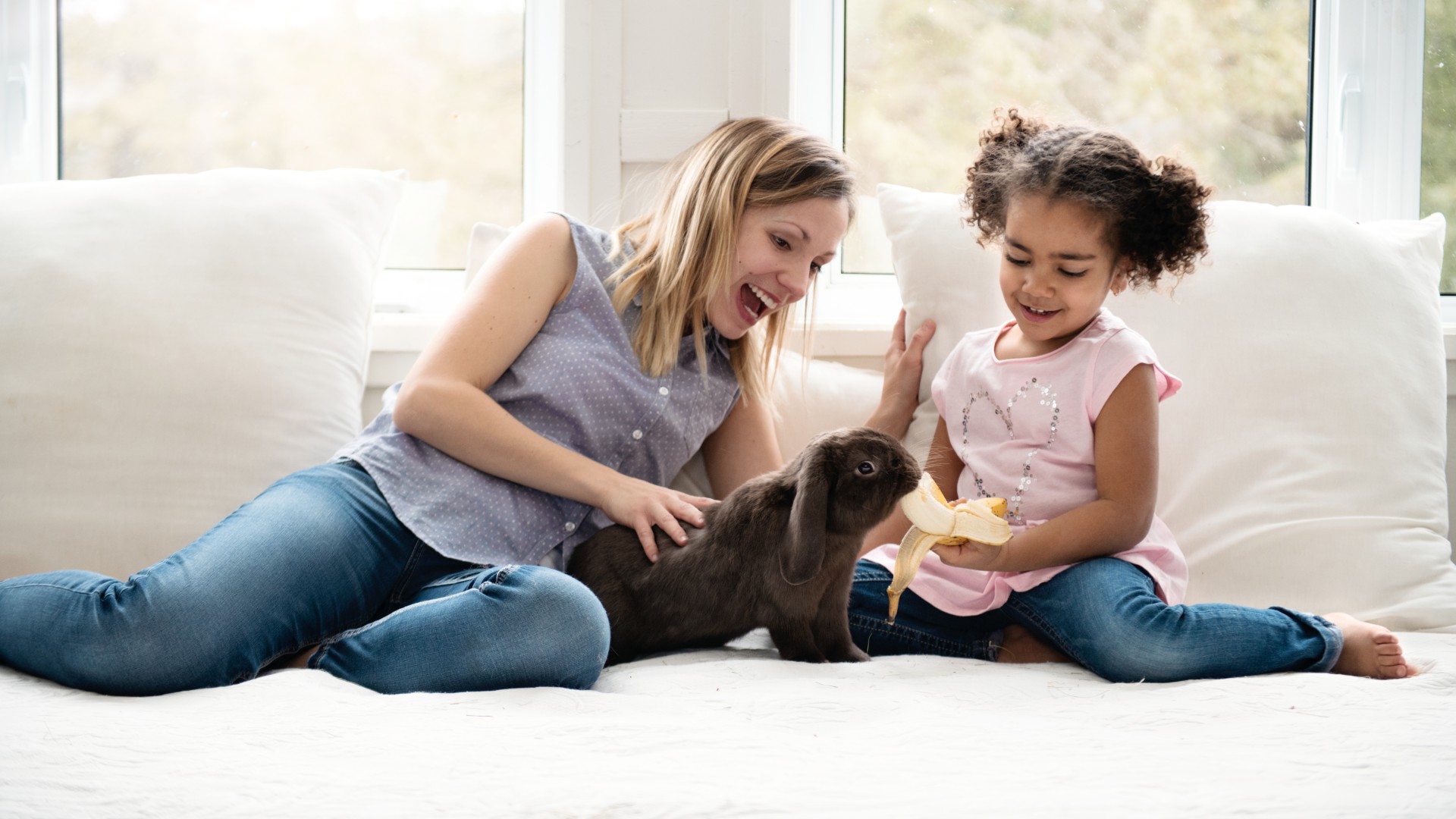
Did you know that rabbits live, on average, for up to 12 years? It’s true! In fact, some rabbits can live even longer than this, so ensuring you have the time and energy to devote to them is really important. Also, there’s a myth that rabbits are low-maintenance pets and this isn’t the case — they have a lot of needs that require meeting in order for them to live a long and happy life so do bear this in mind before you decide to adopt one.
32. Consider your other pets

Do you already have other animals in the house? If so, give some thought to whether or not they’ll get on with a bunny. For the most part, rabbits enjoy the company of other house pets, including cats, guinea pigs, and birds, however, you need to ensure that interactions are always supervised and that each pet is housed separately when you’re not around. While there are some exceptions, as a general rule, it’s best not to pair rabbits with dogs. Dogs have strong hunting instincts and will often chase smaller animals that they view as prey. Many have also been bred to go after rabbits specifically, so unless you have a very confident rabbit and a very well behaved and calm dog, it’s best to avoid having these two animals in the same house.
If you have a bunny, you might want to celebrate International Rabbit Day.

Kathryn is a freelance writer who has been a member of the PetsRadar family since it launched in 2020. Highly experienced in her field, she's driven by a desire to provide pet parents with accurate, timely, and informative content that enables them to provide their fur friends with everything they need to thrive. Kathryn works closely with vets and trainers to ensure all articles offer the most up-to-date information across a range of pet-related fields, from insights into health and behavior issues to tips on products and training. When she’s not busy crafting the perfect sentence for her features, buying guides and news pieces, she can be found hanging out with her family (which includes one super sassy cat), drinking copious amounts of Jasmine tea and reading all the books.
